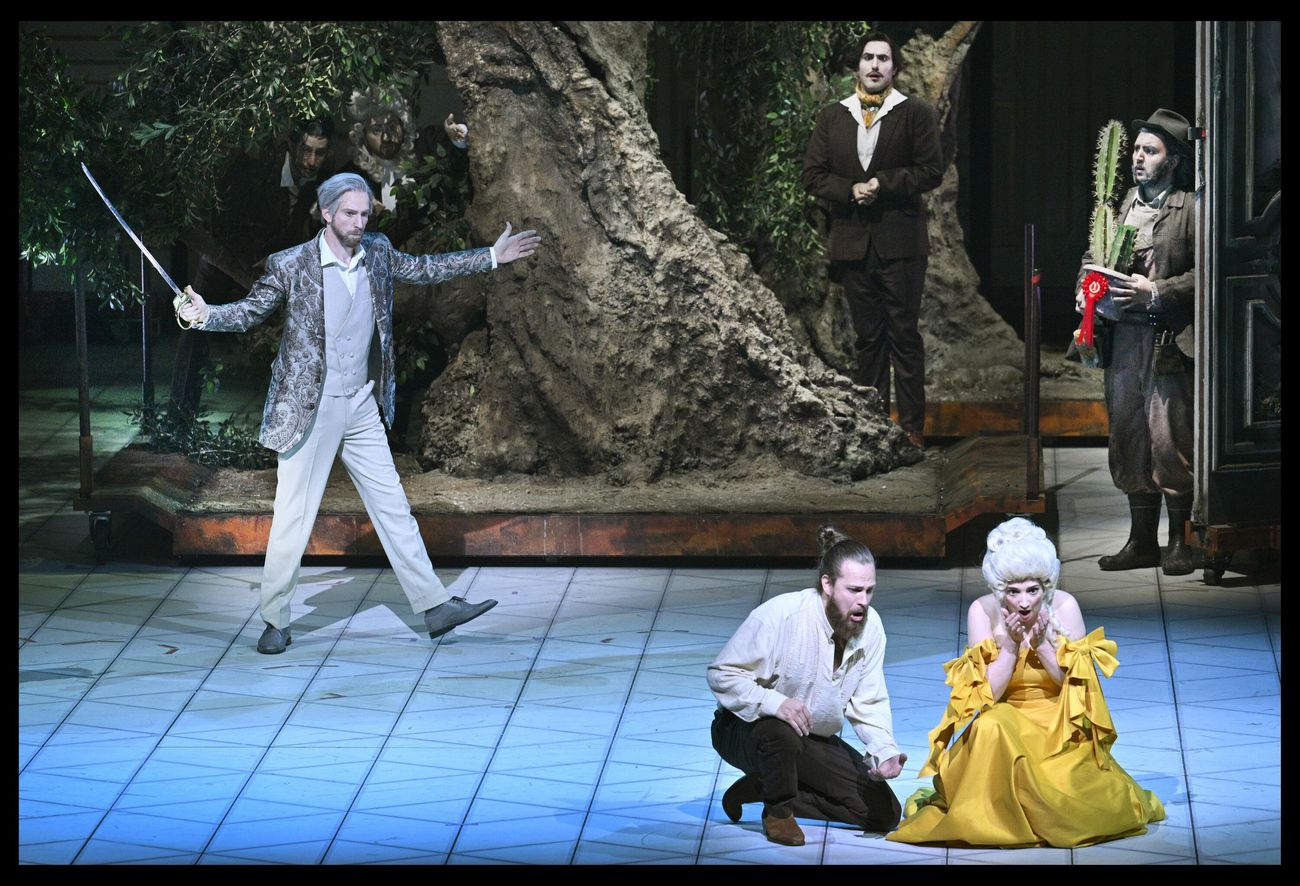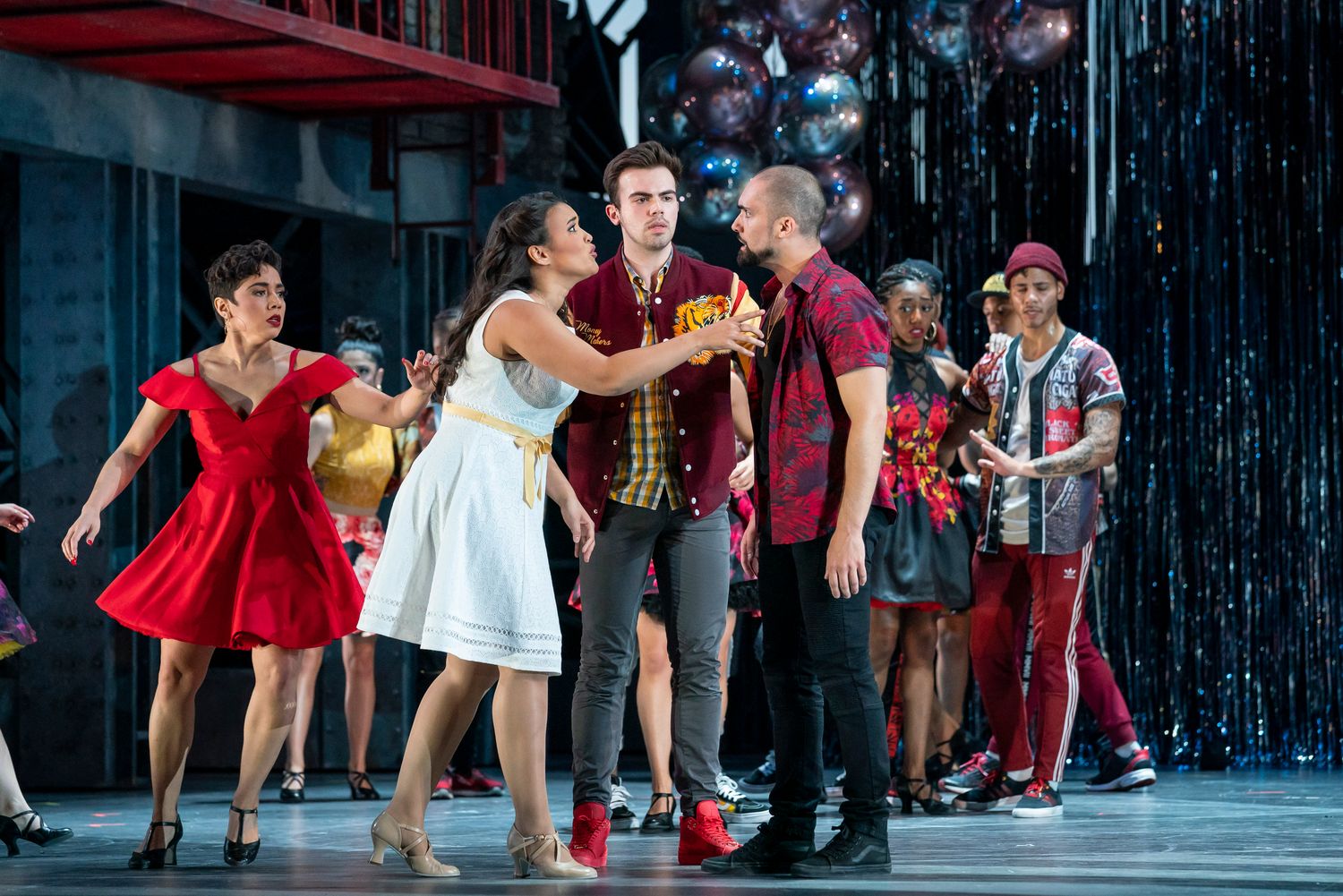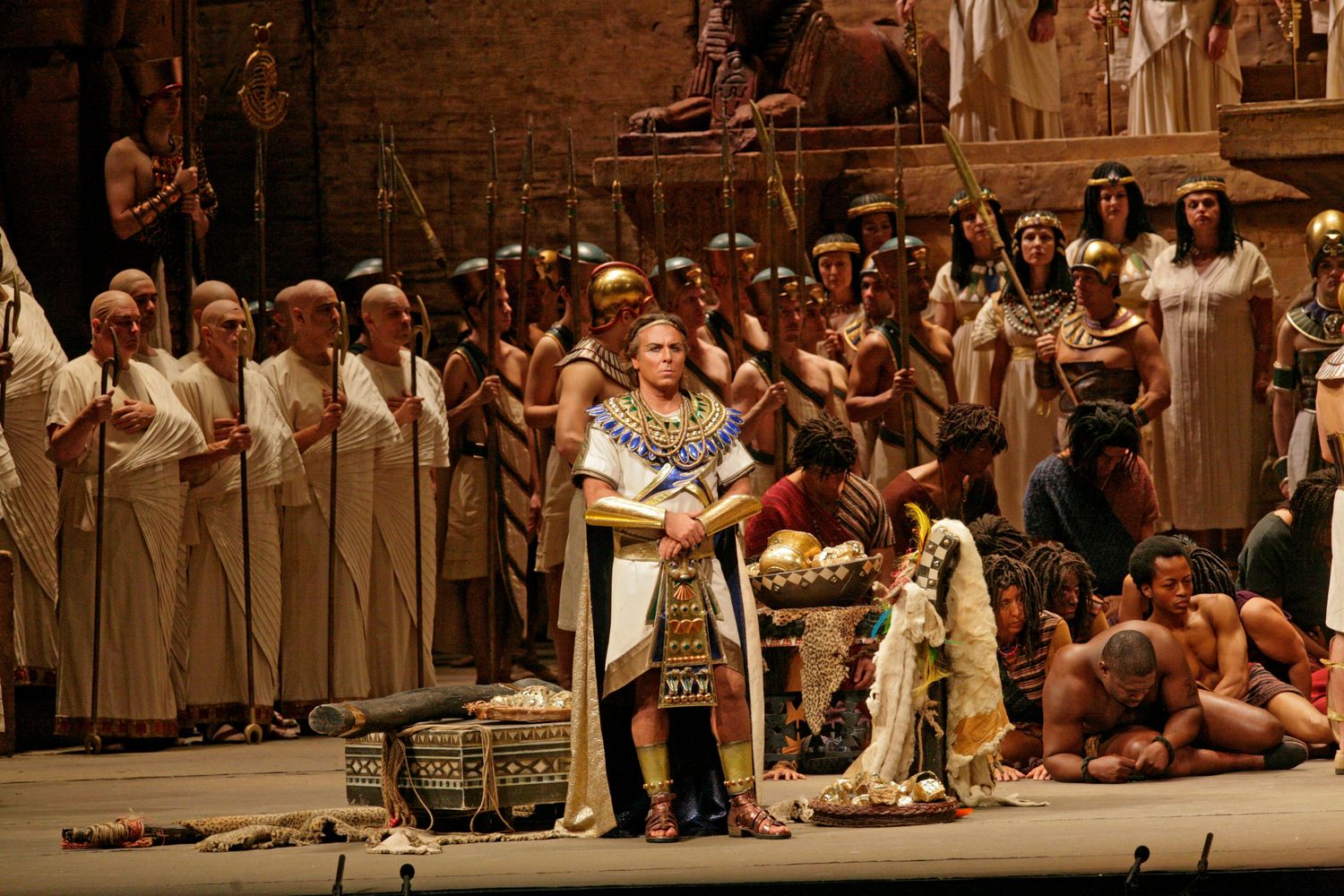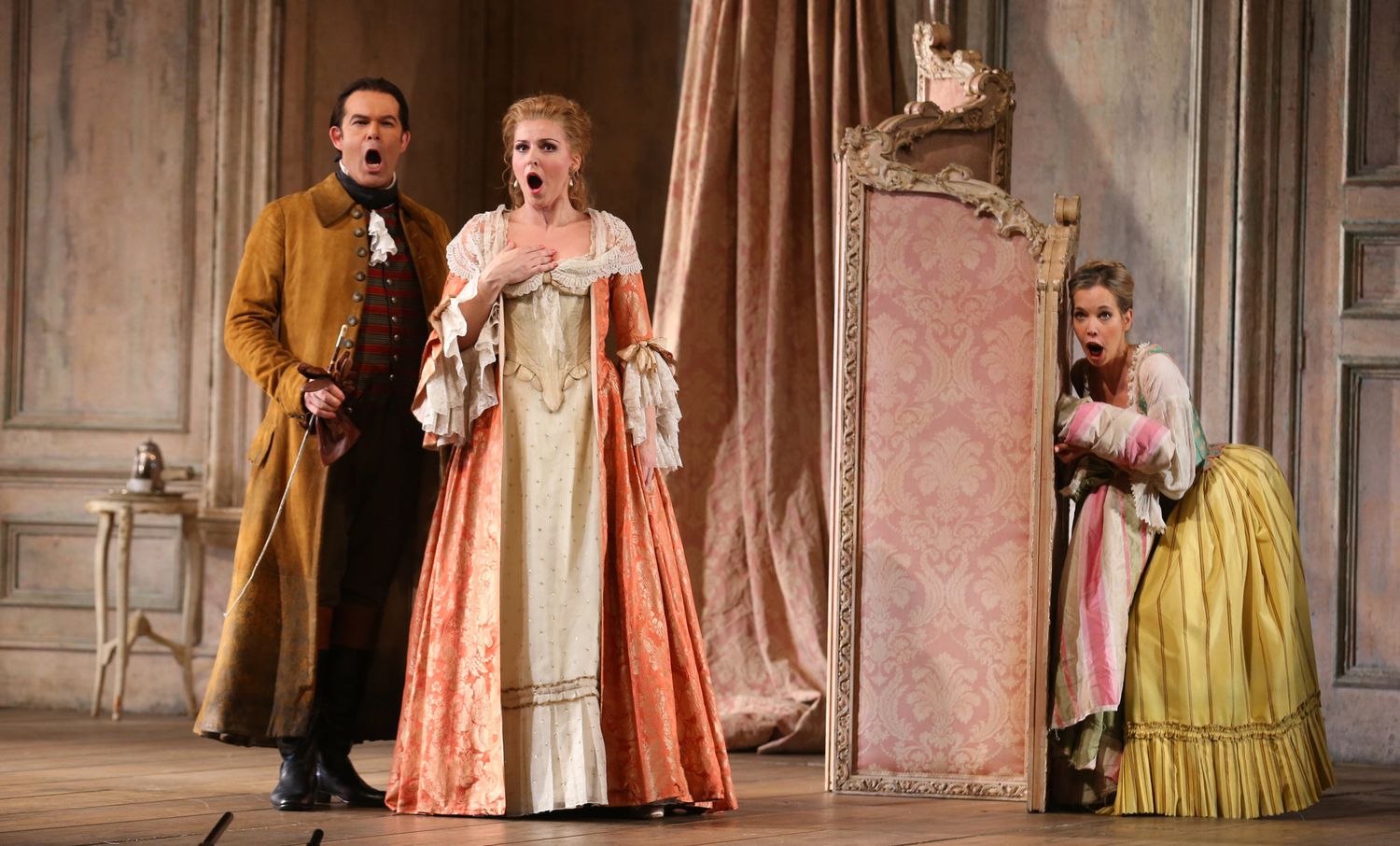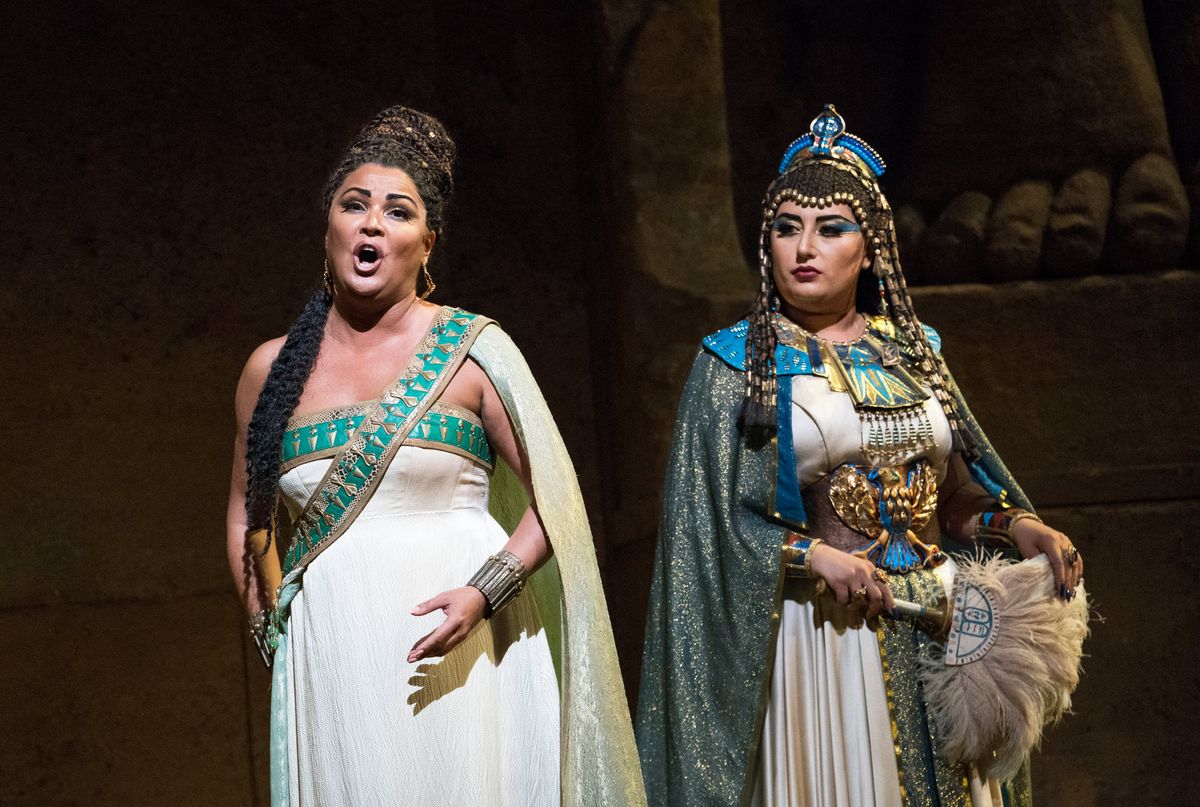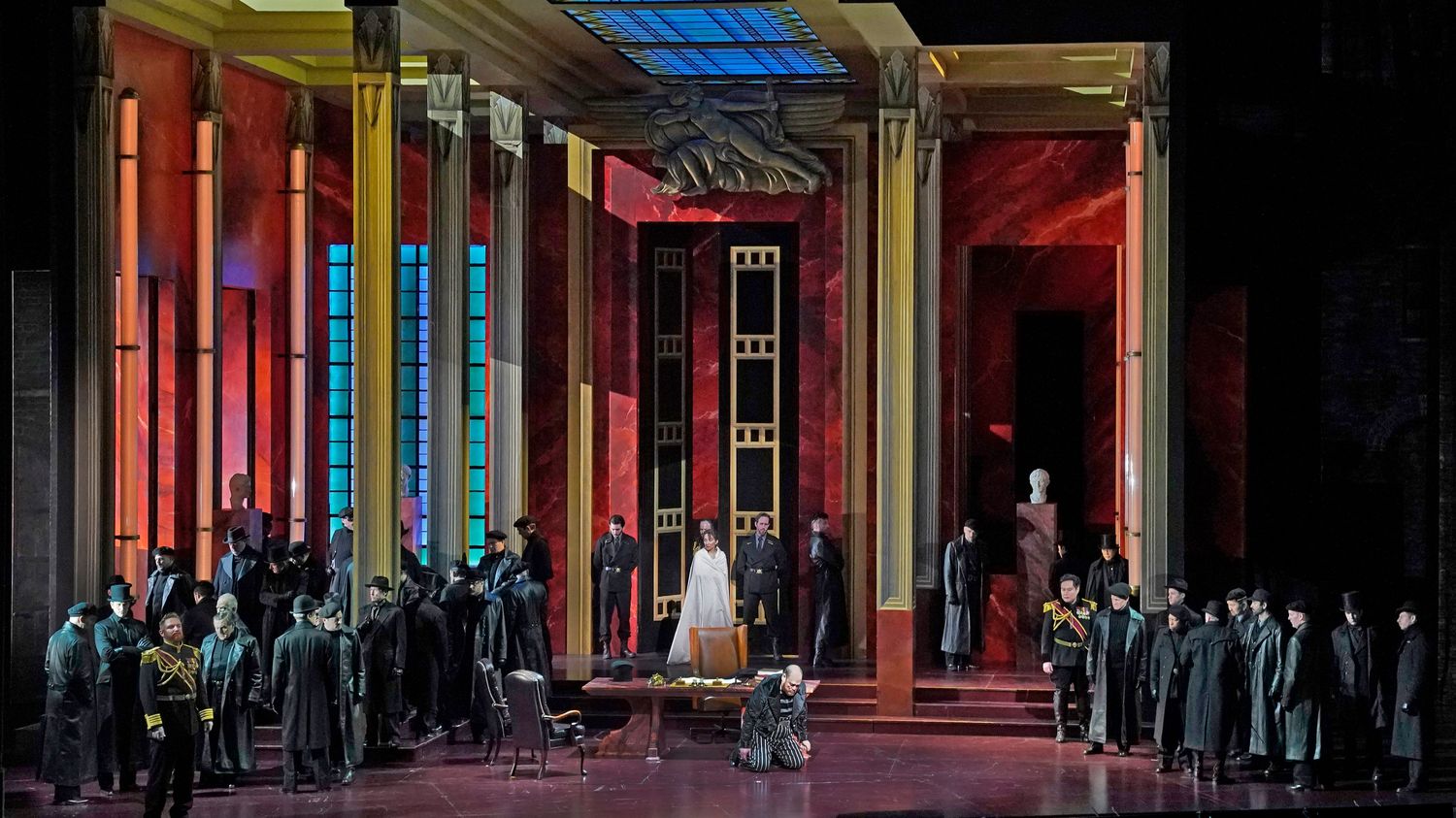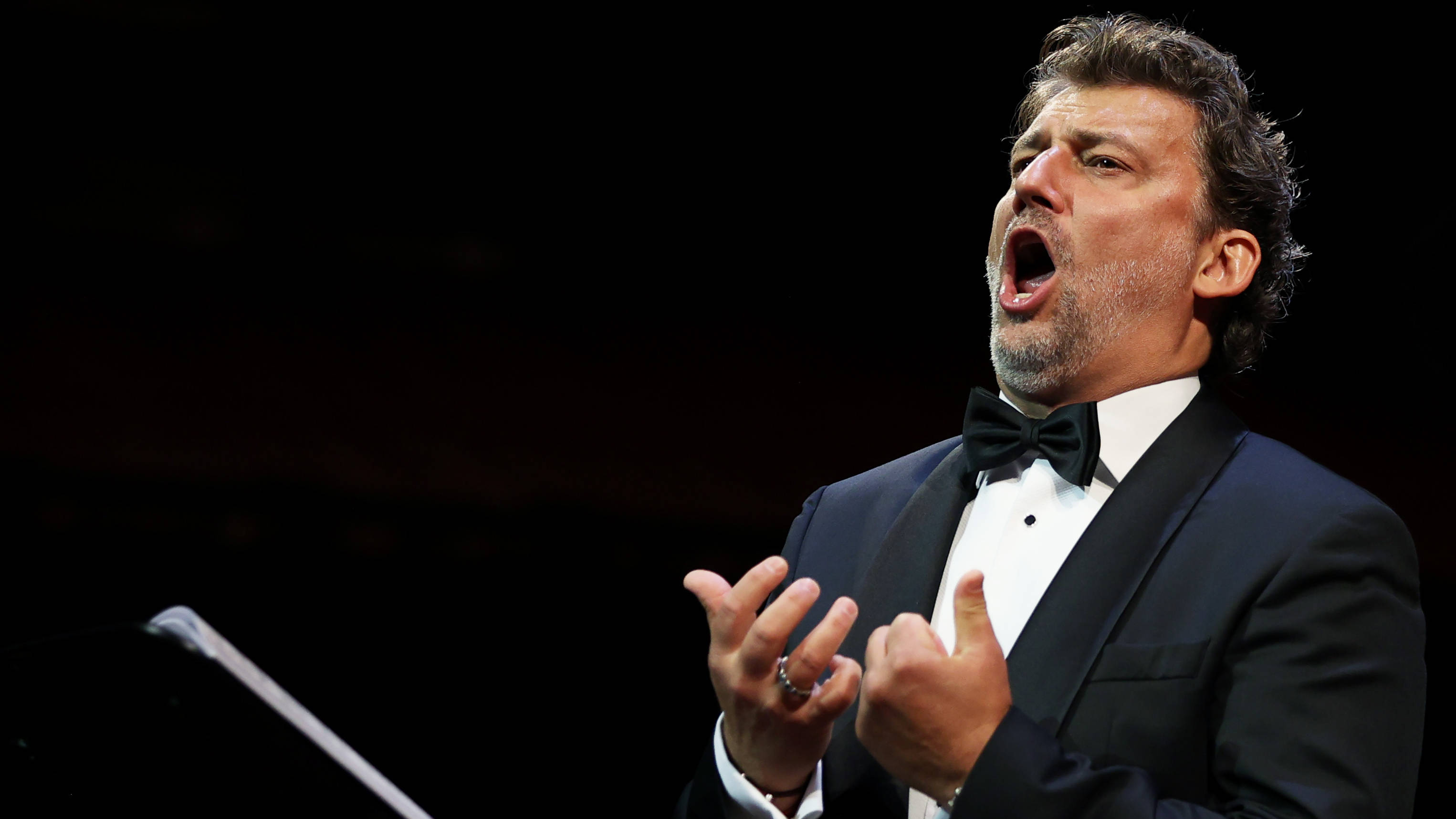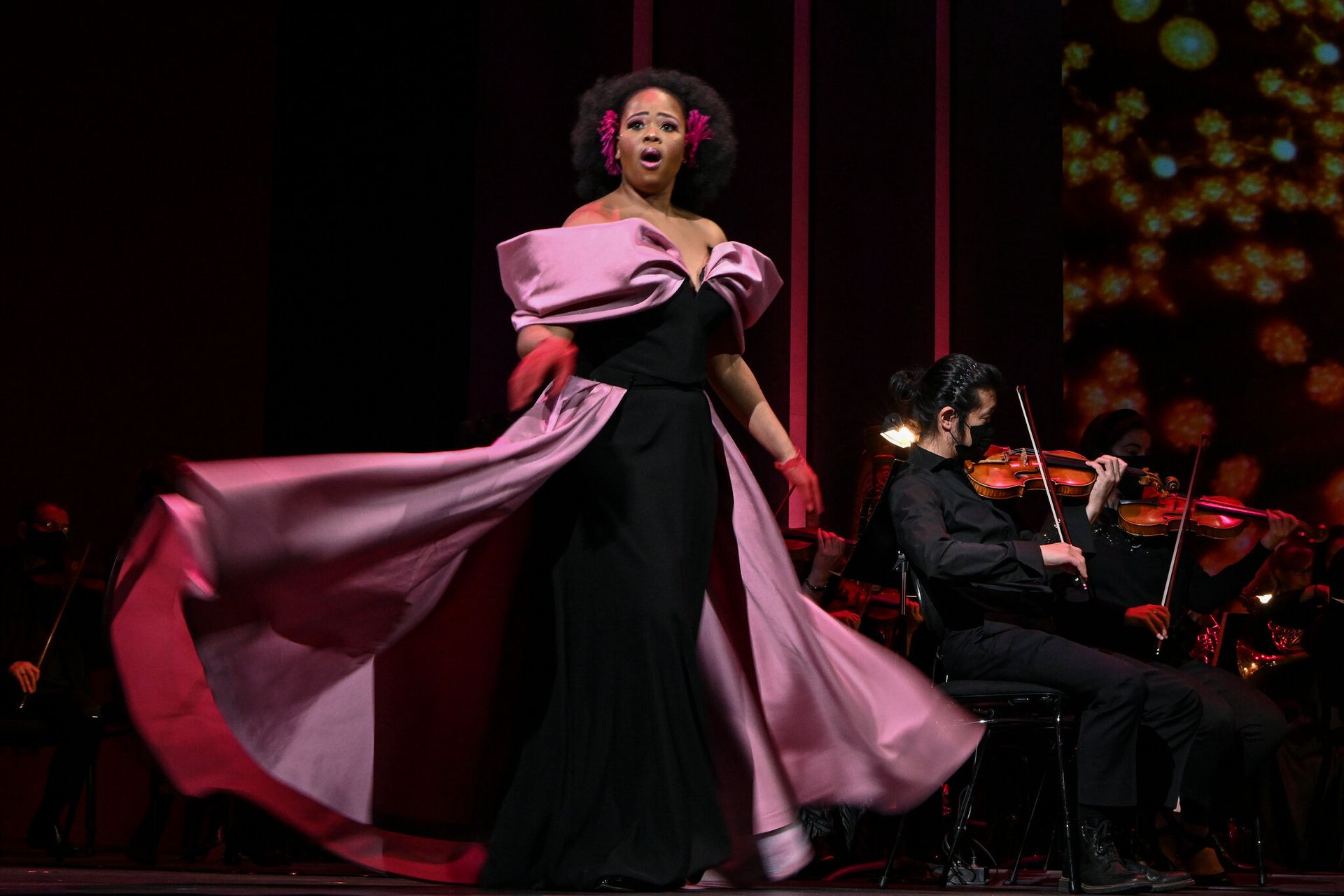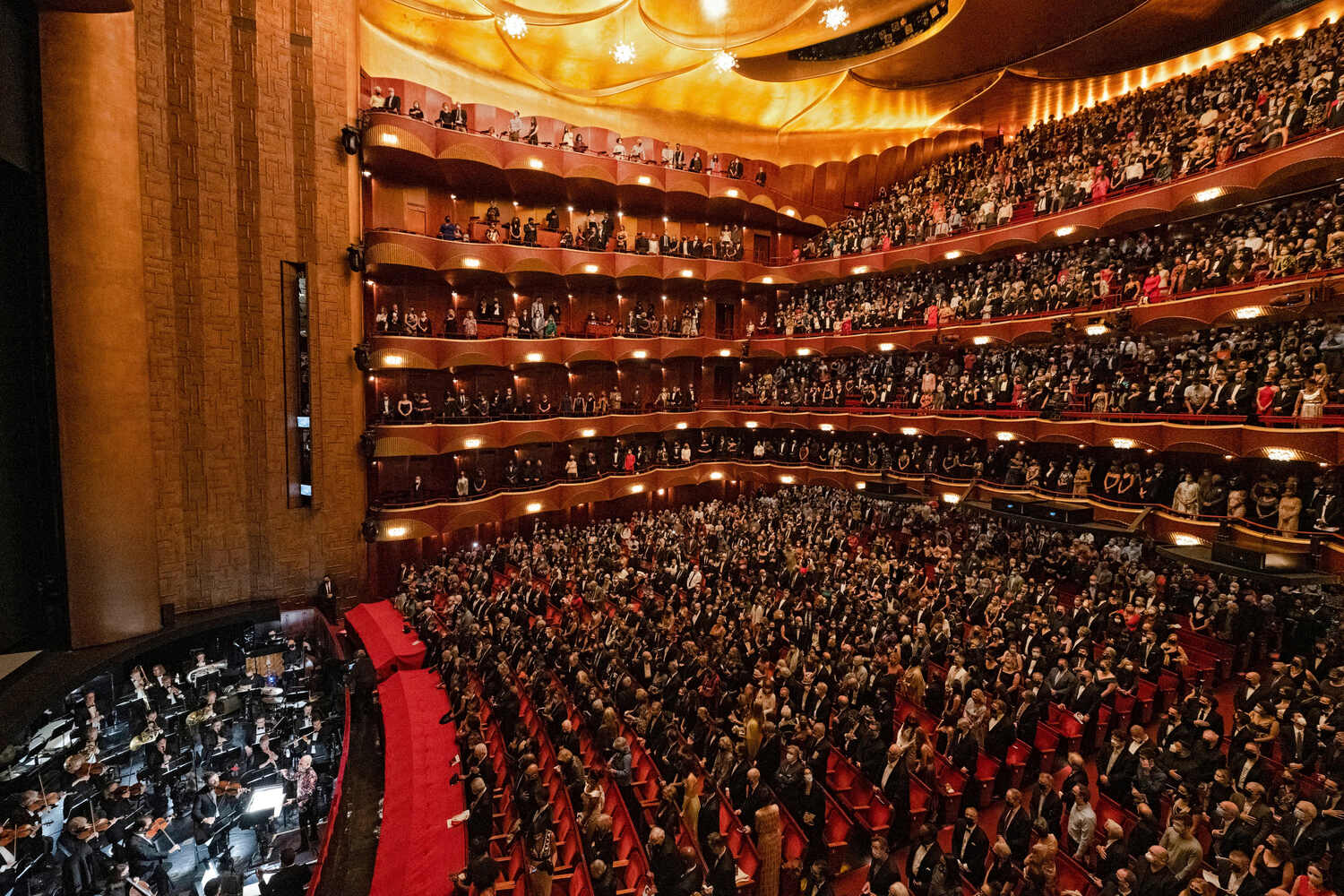Home>Events & Info>Opera>In What Language Is Opera Sung
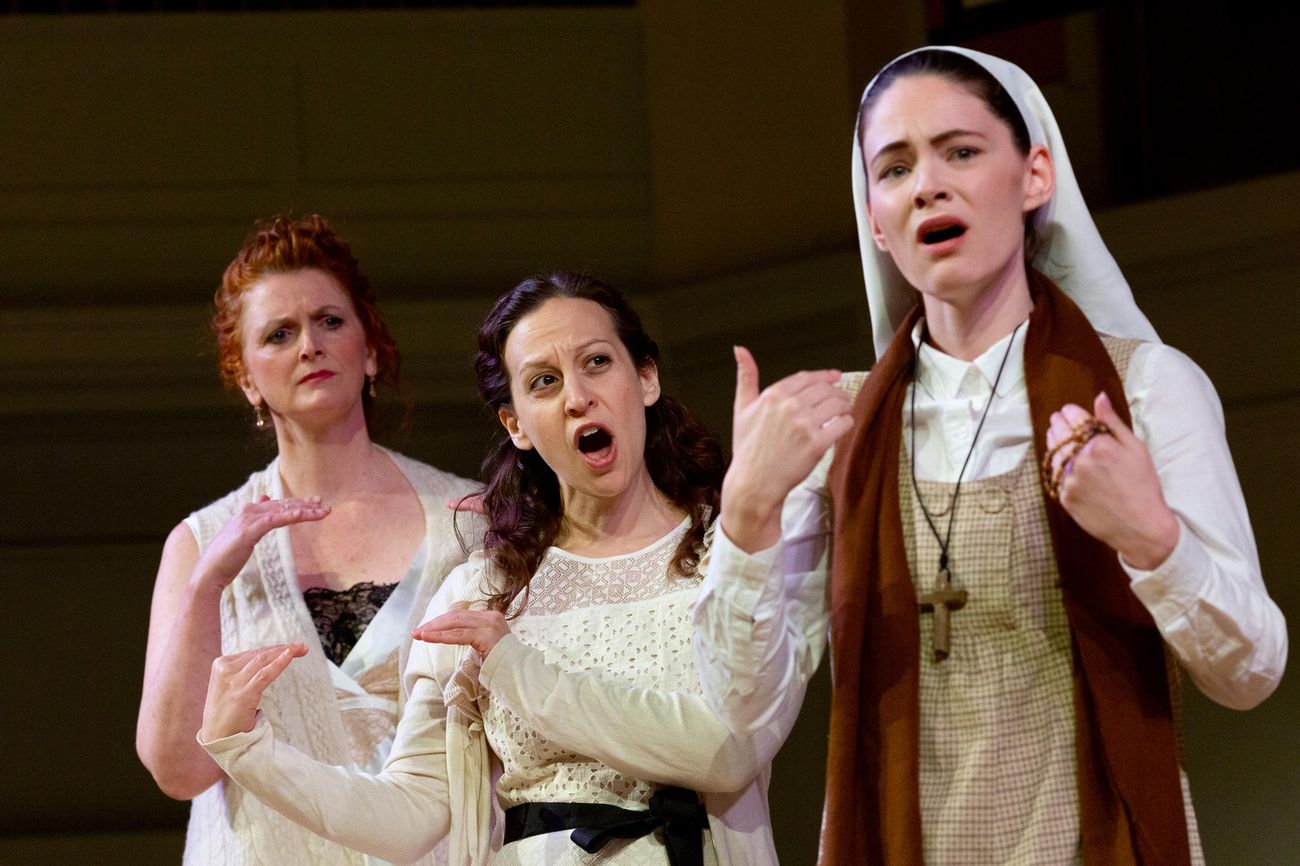

Opera
In What Language Is Opera Sung
Modified: January 22, 2024
Discover the beauty of opera and the languages in which it is sung. Explore the diversity of opera performances and unlock the magic of this captivating art form.
(Many of the links in this article redirect to a specific reviewed product. Your purchase of these products through affiliate links helps to generate commission for AudioLover.com, at no extra cost. Learn more)
Table of Contents
Introduction
Opera, a form of musical theater, has captivated audiences for centuries with its powerful blend of music, singing, acting, and elaborate stage productions. While the visual spectacle and emotional depth of opera performances are undeniable, one of the distinguishing features of this art form is the language in which it is sung.
Opera originated in Italy in the late 16th century and quickly spread across Europe, evolving and adapting to the cultural and linguistic traditions of each region. As a result, opera is performed in a multitude of languages, each adding its own unique flavor to the art form.
In this article, we will explore the languages commonly used in opera and delve into the rich history and characteristics of different linguistic traditions. From the lyrical beauty of Italian opera to the dramatic power of German opera, the variety of language in opera showcases the diversity and richness of human expression.
Join us on this operatic journey as we delve into the enchanting world of language in opera and discover how it enhances the storytelling and emotional impact of this beloved art form.
Historical Background
The roots of opera can be traced back to the Renaissance period in Italy, specifically to the courtly spectacles known as intermedi. These intermedi were elaborate musical interludes performed between the acts of plays, featuring music, singing, and theatrical elements. Over time, these interludes began to take center stage, developing into what we now know as opera.
The first opera acknowledged by historians is Jacopo Peri’s “Dafne,” which was performed in Florence in 1598. This marked the beginning of a new art form that combined music, poetry, and drama. Opera quickly gained popularity and spread throughout Europe, adapting to the cultural and linguistic traditions of each region.
During the Baroque era, opera flourished, with composers like Claudio Monteverdi and Jean-Baptiste Lully making significant contributions to the development of the art form. However, it was in the 18th and 19th centuries that opera truly reached its peak, with iconic composers such as Mozart, Verdi, Wagner, and Puccini shaping the landscape of opera as we know it today.
As opera gained prominence in different countries, each region began to develop its own distinct style and language in opera. This evolution was influenced by cultural, historical, and political factors, as well as by the preferences and sensibilities of the audiences.
Today, opera continues to evolve and adapt to modern times, with composers experimenting with various musical styles and incorporating new elements into their works. Despite the changes, the language in opera remains an integral part of its identity, contributing to the storytelling, emotion, and aesthetic experience that opera provides.
Languages in Opera
Opera is a multilingual art form, with different languages being used to convey the stories, emotions, and nuances of the characters. While Italian, German, French, and Russian are among the most prominent languages in opera, many other languages have also found their way onto the operatic stage.
The choice of language in opera is often influenced by historical factors, cultural preferences, and the original language of the libretto (the text used in the opera). In some cases, composers may even adapt an existing libretto to suit a specific language or audience.
Let’s explore some of the most significant languages in opera and their distinctive characteristics:
Italian Opera
Italian opera holds a special place in the history and development of the art form. With its melodic and expressive qualities, Italian has become synonymous with opera. Many of the most renowned operas, such as Verdi’s “La Traviata” and Puccini’s “Tosca,” are composed in Italian. The language’s lyrical nature allows singers to convey emotions through its musicality.
German Opera
German opera, especially during the Romantic period, is known for its dramatic power and intensity. Composers like Wagner, with his epic and grandiose works such as “Tristan und Isolde” and “The Ring Cycle,” heavily influenced German opera. The language lends itself to the expression of deep emotions and complex themes, making it a favorite for operatic storytelling.
French Opera
French opera is characterized by its elegance, refined vocal lines, and ornate musical style. Composers like Bizet, Gounod, and Debussy have contributed significantly to the French operatic tradition. French opera often showcases a delicate balance between music, drama, and dance, creating a visual and auditory spectacle.
Russian Opera
Russian opera has a rich and distinctive sound, influenced by the country’s unique musical heritage. Composers like Tchaikovsky and Mussorgsky explored the depths of human emotions and Russian folklore through their operas. The Russian language’s rich and resonant qualities lend themselves well to the grandeur and intensity often found in Russian operas.
These are just a few examples of the prominent languages in opera. Other languages, such as English, Spanish, Czech, and Swedish, have also made significant contributions to the operatic repertoire, adding their own flavor and cultural influence to the art form.
Language in opera is not merely a vehicle for communication. It is an essential element that enhances the music, highlights the nuances of the libretto, and allows singers to fully express the emotions and intentions of their characters. The combination of vocal technique, linguistic interpretation, and musicality creates a powerful and captivating operatic experience.
Italian Opera
Italian opera is often considered the birthplace and heart of the art form. With its rich musical heritage and expressive language, Italian has become synonymous with opera itself. Composers like Verdi, Puccini, and Rossini have created some of the most beloved and enduring works in the Italian operatic tradition.
Italian opera is known for its lyrical beauty, melodic lines, and emotional depth. The language’s natural musicality allows singers to fully convey the nuances and emotions of the characters they portray. From the passionate arias of love and longing to the fiery moments of dramatic conflict, Italian opera captures the full range of human emotions.
One of the defining features of Italian opera is the bel canto (“beautiful singing”) style. This style emphasizes the technical mastery of vocal technique, highlighting the beauty of the voice and the expressive power of the music. Composers like Bellini and Donizetti are renowned for their bel canto operas, which showcase the virtuosity and agility of the singers.
Italian opera also places great importance on the vocal ensemble. Duets, trios, and powerful choruses are common, creating moments of dramatic tension and emotional intensity. The blending of voices in Italian opera adds depth and complexity to the storytelling, allowing for powerful musical collaborations between characters.
Additionally, Italian opera often features compelling and timeless stories. From tragic love affairs, as seen in Verdi’s “La Traviata” and Puccini’s “Madama Butterfly,” to historical dramas like Verdi’s “Nabucco” and Rossini’s “Il Barbiere di Siviglia,” Italian opera offers a diverse range of narratives that resonate with audiences across time and culture.
Language is an integral part of the Italian operatic experience. The expressive qualities of the Italian language, combined with the melodic beauty of the music, create a unique and captivating atmosphere. Even for those who may not understand the language, the emotional power and musicality of Italian opera can be felt on a profound level.
Italian opera continues to captivate audiences worldwide, with its timeless melodies, expressive language, and timeless stories. It remains a cornerstone of the operatic tradition, representing the essence and soul of this beloved art form.
German Opera
German opera has a rich and distinctive history, known for its dramatic power and intense emotional expression. German composers such as Richard Wagner and Richard Strauss have left an indelible mark on the operatic repertoire with their epic and visionary works.
German opera often explores deep philosophical themes and complex psychological characterizations. The language itself is known for its precision and depth, allowing composers to delve into intricate storytelling and delve into the depths of human experience.
One of the most significant contributions to German opera is the work of Richard Wagner. His operas, such as “Tristan und Isolde” and “The Ring Cycle,” are monumental in scale and scope. Wagner’s use of leitmotifs (recurring musical themes associated with characters, objects, or ideas) and his grand orchestration create a powerful and immersive operatic experience. German opera has been heavily influenced by Wagner’s concepts, often featuring large orchestras and ambitious stagings.
The German language lends itself well to dramatic vocal expression. The deep resonance of the language allows singers to convey intense emotions and portray complex characters with authenticity. German opera often features powerful and declamatory singing, demanding technical prowess and emotional depth from the performers.
German opera is also known for its exploration of national myths and folklore. Works like Wagner’s “Der Ring des Nibelungen” delve into Germanic legends, weaving together stories from Norse mythology. These mythological elements, combined with the richness of the German language, create an operatic experience that is both transcendent and deeply rooted in cultural identity.
German opera has a long-standing tradition of collaboration between composers and librettists. The language is carefully crafted to support the storytelling and character development. Composers work in close partnership with the librettist to ensure a seamless integration of text and music, resulting in a cohesive and immersive operatic experience.
While German opera may be considered more challenging for non-German speakers, its profound themes and innovative musical techniques continue to captivate audiences around the world. German opera’s ability to explore the depths of human emotion and tackle complex narratives makes it a truly transformative and intriguing genre within the operatic tradition.
French Opera
French opera has its own distinct style and characteristics, known for its elegance, refined vocal lines, and ornate musical style. It has made significant contributions to the operatic repertoire, with composers such as Bizet, Gounod, and Debussy leaving an indelible mark on the genre.
French opera places great emphasis on the integration of music, drama, and dance. It often features intricate ballet sequences and elaborate stage productions, creating a visual and auditory spectacle. The language itself lends an air of sophistication and elegance to the operatic experience.
One of the hallmarks of French opera is its emphasis on clarity of diction. Singers are trained to articulate the French language with precision, ensuring that every word is clearly understood. This attention to detail enhances the storytelling and allows for a more nuanced interpretation of the libretto.
The French operatic tradition is rich in grand opera, a genre characterized by large-scale productions, magnificent sets, and extravagant costumes. Composers like Meyerbeer and Halévy incorporated elements of spectacle and historical themes into their works, creating a sense of grandeur and theatricality.
French opera also embraces the tradition of opéra comique, which combines spoken dialogue with sung music. Famous examples include Bizet’s “Carmen” and Offenbach’s “The Tales of Hoffmann.” Opéra comique allows for a lighter and more accessible form of storytelling, making it highly popular among audiences.
The French language itself adds to the charm and allure of French opera. Its melodic qualities and subtle nuances allow for expressive singing that captures the essence of the characters and their emotions. French opera often features poetic and lyrical texts, offering a poetic and musical language that resonates with the audience.
French opera has evolved over the centuries, embracing new musical styles and incorporating diverse themes. From the tragic love story of Bizet’s “Carmen” to the mystical and dreamlike world of Debussy’s “Pelléas et Mélisande,” French opera offers a diverse range of narratives that showcase the versatility and artistic exploration within the genre.
With its elegance, refinement, and emphasis on clarity of language, French opera continues to captivate audiences, transporting them to a world of beauty and emotion. It remains an integral part of the operatic tradition, celebrating the richness and artistry of the French musical heritage.
Russian Opera
Russian opera has a rich and unique tradition that has captivated audiences with its distinctive sound and powerful storytelling. Composers such as Tchaikovsky, Mussorgsky, and Rimsky-Korsakov have made significant contributions to the world of opera, creating works that are deeply rooted in Russian culture and history.
Russian opera is known for its passionate and emotive music, often characterized by soaring melodic lines and lush orchestration. The music reflects the turbulent and dramatic nature of Russian society and history, capturing the spirit and essence of the Russian soul.
The Russian language itself has a deep and resonant quality, perfectly suited for expressing the intensity of human emotions. Russian opera features richly textured vocal ensembles, passionate arias, and powerful choruses, all of which enhance the dramatic impact of the storytelling.
One of the defining characteristics of Russian opera is the incorporation of folk melodies and themes. Many composers draw inspiration from Russian folk songs and incorporate them into their operas, infusing them with a sense of authenticity and cultural identity. This connection to folk traditions adds a distinctive flavor to Russian opera, creating a unique musical experience.
Russian opera also explores themes of national identity and historical events. Operas such as Mussorgsky’s “Boris Godunov” and Tchaikovsky’s “Eugene Onegin” are deeply rooted in Russian history and offer a window into the country’s rich cultural heritage.
Another notable aspect of Russian opera is its impressive vocal demands. Russian singers are renowned for their powerful and dramatic voices, capable of conveying the emotional depth and intensity required by the repertoire. The vocal performances in Russian opera are often showcased in demanding roles that require both technical skill and emotional depth.
Russian opera continues to captivate audiences around the world with its passionate music, poignant storytelling, and profound exploration of the human condition. The combination of the Russian language, folk influences, and the powerful vocal performances creates an enduring and captivating operatic experience.
Through its unique blend of music, language, and cultural heritage, Russian opera offers a window into the soul of Russia, captivating audiences with its emotional depth and powerful storytelling.
English Opera
English opera may not have the same historical prominence as Italian, German, or French opera, but it has seen remarkable development and growth over the centuries. English composers have contributed significantly to the operatic repertoire, creating works that showcase the diversity and artistry of the English language.
One of the earliest notable contributions to English opera is the work of Henry Purcell. His masterpiece, “Dido and Aeneas,” is regarded as one of the finest examples of English Baroque opera. Purcell skillfully combined expressive vocal lines and poignant storytelling, creating a captivating and emotionally charged opera.
In the 20th century, the English language gained further recognition in opera with the works of Benjamin Britten. Britten’s operas, such as “Peter Grimes” and “Billy Budd,” explored the intricacies of human nature and social issues. The English language allowed Britten to capture the subtleties of the text, creating a deeply engaging and thought-provoking operatic experience.
English opera is known for its emphasis on clear and comprehensible storytelling. The English language’s clarity and directness allow for the effective communication of the libretto, ensuring that audiences can fully appreciate the narrative. This accessibility has contributed to the popularity and success of English-language operas.
English opera covers a wide range of styles and themes, from classical adaptations to contemporary productions. Composers like Ralph Vaughan Williams and Peter Maxwell Davies have expanded the boundaries of English opera, exploring new musical idioms and pushing the boundaries of operatic convention.
The versatility of the English language allows for a diverse range of subject matter in English opera. From historical dramas to modern-day tales, English-language operas tackle a variety of themes and narratives. This flexibility ensures that there is an English opera to resonate with different tastes and interests.
English opera also benefits from the availability of talented English-speaking singers. Opera companies around the world perform English-language operas, attracting both native English-speaking performers and those who have developed proficiency in the language. This enables the full expression of the text and its nuances, adding to the overall impact of the operatic experience.
English opera continues to evolve and thrive, with contemporary composers embracing new styles and pushing the boundaries of the art form. The English language’s expressive qualities and accessibility make it a vibrant and important component of the operatic tradition, connecting audiences to captivating stories and emotive music.
Other Languages in Opera
While Italian, German, French, and English are among the most prominent languages used in opera, many other languages have found their place on the operatic stage. These languages bring their own unique flavor and cultural influences, adding to the diverse tapestry of the operatic tradition.
Spanish opera, for example, showcases the vibrancy and passion of the Spanish language. The works of Spanish composers like Manuel de Falla and Pablo Sorozábal delve into the rich tapestry of Spanish culture, drawing inspiration from flamenco rhythms and traditional Spanish melodies.
Czech opera holds a significant place in the repertoire, with works by composers such as Bedřich Smetana and Antonín Dvořák. The Czech language, with its rich musical qualities, lends itself well to the expression of the country’s folklore and national identity.
Scandinavian languages, including Swedish, Norwegian, Danish, and Finnish, have made their mark in the operatic world. Operas by composers like Jean Sibelius and Carl Nielsen explore the cultural heritage of these nations, often incorporating elements of Norse mythology and folklore.
Rare languages, such as Hungarian in Ferenc Erkel’s operas or Polish in Stanisław Moniuszko’s creations, offer glimpses into the history and musical traditions of their respective countries.
Operas in Eastern languages, such as Chinese, Japanese, and Korean, bring their own unique perspectives and musical styles to the stage. These works often draw deeply from their cultural heritage, telling captivating stories with a distinctly Eastern flair.
Opera is a global art form, reaching audiences in diverse cultures and languages. While certain languages may dominate the opera world, the inclusion of other languages allows for a greater representation of diverse perspectives and traditions. Each language brings its own musicality, cultural symbolism, and storytelling techniques to the art of opera, enriching the overall experience for performers and audiences alike.
As opera continues to evolve and adapt to contemporary audiences, the embrace of different languages ensures that the art form remains vibrant, relevant, and reflective of the diverse world in which we live.
Conclusion
The language in which opera is sung plays a vital role in shaping the essence and impact of this captivating art form. From the melodic beauty of Italian opera to the dramatic power of German opera, the variety of languages used in opera reflects the diversity and richness of human expression.
Italian opera holds a special place in the history of the art form, with its lyrical beauty and the emphasis it places on bel canto singing. German opera, known for its dramatic intensity, explores complex psychological themes with depth and precision. French opera, with its elegance and refinement, intertwines music and drama in graceful harmonies. Russian opera, rooted in a rich cultural heritage, showcases emotional depth and resonant vocal performances. English opera encompasses a wide range of styles and subjects, embracing clear storytelling and accessibility.
Other languages, such as Spanish, Czech, Scandinavian, and Eastern languages, also contribute to the operatic repertoire, infusing it with their own unique flavors and cultural influences.
Opera is a truly global art form, with languages serving as vehicles for storytelling, emotion, and musicality. The choice of language in opera allows composers, librettists, and performers to create a fully immersive and evocative experience for audiences around the world.
Regardless of the language, opera has the remarkable ability to transport us, inspire us, and stir our emotions. It combines music, singing, acting, and staging to create a multisensory experience that captivates and engages. The power of opera lies in its ability to transcend linguistic and cultural barriers, speaking directly to the heart and soul of individuals from diverse backgrounds.
As opera continues to evolve and adapt to the changing times, the beauty and significance of language in opera remain constant. It adds depth, emotion, and storytelling to the music, connecting us to the characters and narratives on the stage.
Whether understood through translation or appreciated in its original form, the language of opera serves as a universal language of the human experience, forging connections and bridging differences. It allows us to celebrate the diversity of culture and artistic expression, reminding us of the power of music and language to touch our hearts and transcend boundaries.

